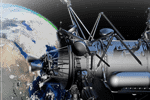Rocket launches have always been a fascinating spectacle, sparking curiosity and wonder about the vast universe beyond our planet. But beyond the awe-inspiring visuals, these launches play a critical role in advancing scientific research. From the early days of space exploration to today’s sophisticated missions, rockets have been instrumental in expanding our understanding of the cosmos and developing technologies that benefit life on Earth.
The role of rocket launches in advancing science
Opening new frontiers
Rocket launches have enabled us to push the boundaries of human knowledge by venturing into previously inaccessible regions of space.
Through missions that send probes to distant planets and beyond, we’ve discovered new phenomena and gathered data that challenge our understanding of physics and the universe’s formation.
Enhancing technological innovations
The demands of space exploration drive the development of cutting-edge technologies. These innovations often find applications in other fields, propelling advancements in various scientific domains.
Key contributions of rocket launches to scientific research
Space-based observatories
Space-based telescopes like the Hubble Space Telescope have revolutionized our view of the universe.
These observatories provide clearer images of distant galaxies, nebulae, and stars, leading to groundbreaking discoveries about the nature of dark matter, black holes, and the expansion of the universe.
International Space Station (ISS)
The ISS serves as a unique laboratory where scientists conduct experiments in microgravity, offering insights that are impossible to obtain on Earth.
Research in the microgravity environment of the ISS has led to significant findings in biology, physics, and material science.
The ISS is a symbol of international cooperation, bringing together scientists from around the world to work on common goals.
Satellite deployment
Satellites are pivotal in collecting data and monitoring various Earth processes.
Satellites help monitor deforestation, urban growth, and ocean health, providing essential data for environmental conservation efforts.
Meteorological satellites improve weather prediction models, helping to save lives and property by providing early warnings for severe weather events.
Planetary exploration
Missions to other planets yield invaluable data about our solar system.
Mars Rovers
Rovers like Curiosity and Perseverance explore the Martian surface, analyzing soil samples and searching for signs of past life.
Outer planet missions
Probes like Voyager and Cassini have provided detailed information about the outer planets, their moons, and the intricate dynamics of our solar system.
Impact on earth sciences
Climate change studies
Data from satellites help scientists track climate change indicators like polar ice melt and sea-level rise.
Environmental monitoring
Remote sensing technology from space aids in monitoring air and water quality, helping to enforce environmental regulations and protect ecosystems.
Natural disaster prediction
Satellites provide critical data for predicting natural disasters such as hurricanes, earthquakes, and volcanic eruptions, enabling timely evacuations and disaster preparedness.
Technological spin-offs from rocket science
Innovations in medicine
Technology developed for space missions has led to advancements in medical devices, such as improved imaging systems and portable health monitors.
Everyday technologies
Many everyday technologies, from GPS navigation to wireless communication, have roots in space research.
The future of rocket launches and scientific research
Upcoming missions
Future missions aim to explore more distant and challenging environments, such as the moons of Jupiter and Saturn, and to bring back samples from Mars.
Private sector involvement
Companies like SpaceX and Blue Origin are making space more accessible, reducing costs and increasing the frequency of launches.
Sustainable space exploration
Efforts are being made to develop sustainable technologies for space exploration to minimize environmental impact and ensure the longevity of space missions.
Rocket launches have been instrumental in advancing scientific research, offering new insights into the universe and driving technological innovations that benefit humanity. As we look to the future, the continued exploration of space promises even more exciting discoveries and advancements.
FAQs
What are the main benefits of rocket launches for scientific research?
Rocket launches enable the deployment of satellites, space probes, and space-based observatories, facilitating advancements in fields like astronomy, Earth sciences, and microgravity research.
How do satellites help in weather forecasting?
Satellites provide real-time data on weather patterns, atmospheric conditions, and storm development, improving the accuracy of weather forecasts and early warning systems.
What role does the ISS play in scientific advancements?
The ISS serves as a laboratory for experiments in microgravity, leading to discoveries in biology, physics, and material science, and fostering international scientific collaboration.
How has space exploration impacted everyday technology?
Space exploration has led to the development of various technologies used in everyday life, such as GPS navigation, improved medical devices, and advanced communication systems.
What are some upcoming missions to look forward to?
Upcoming missions include exploring the moons of Jupiter and Saturn, returning samples from Mars, and developing sustainable technologies for long-term space exploration.













